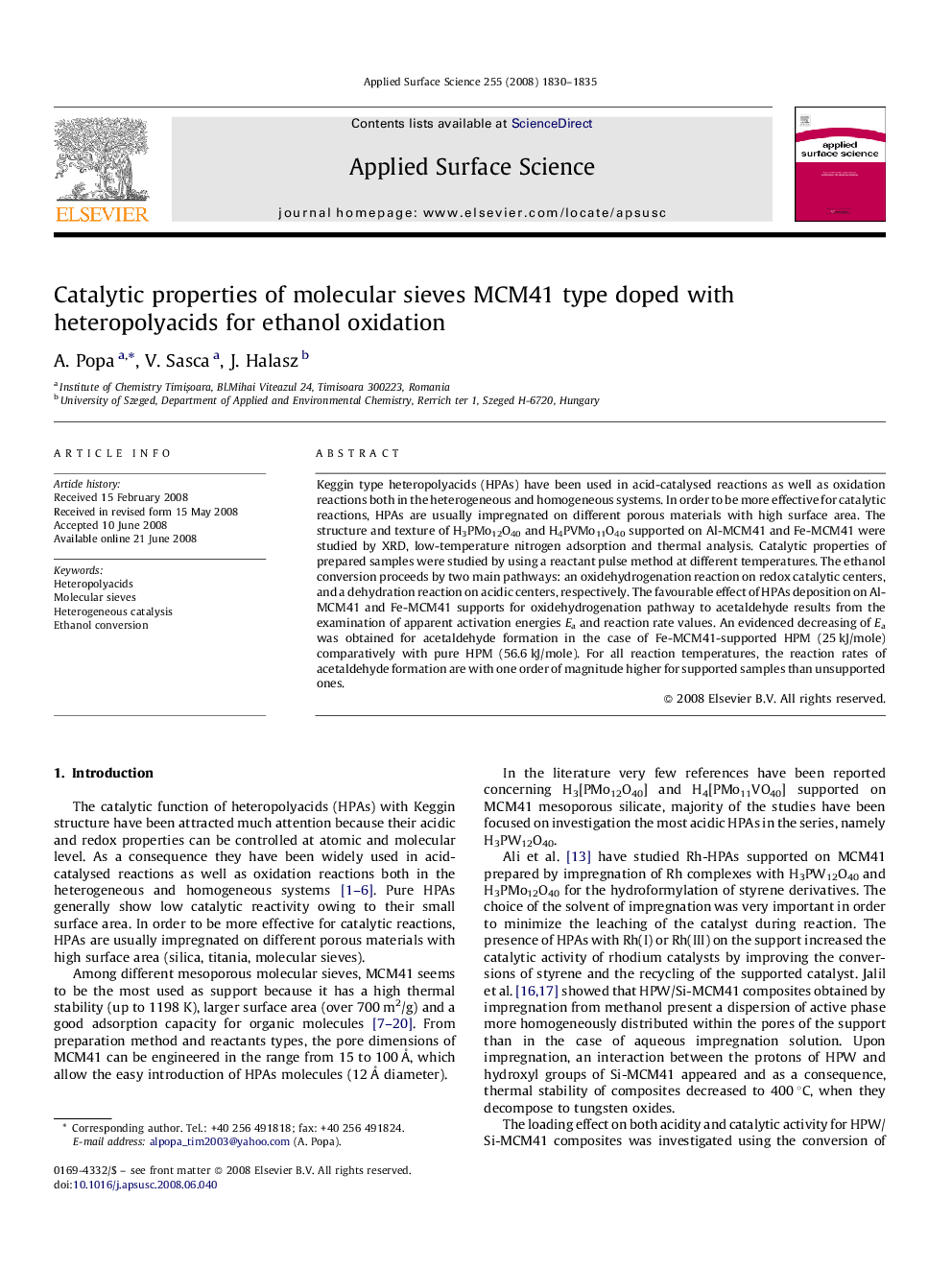| Article ID | Journal | Published Year | Pages | File Type |
|---|---|---|---|---|
| 5363180 | Applied Surface Science | 2008 | 6 Pages |
Keggin type heteropolyacids (HPAs) have been used in acid-catalysed reactions as well as oxidation reactions both in the heterogeneous and homogeneous systems. In order to be more effective for catalytic reactions, HPAs are usually impregnated on different porous materials with high surface area. The structure and texture of H3PMo12O40 and H4PVMo11O40 supported on Al-MCM41 and Fe-MCM41 were studied by XRD, low-temperature nitrogen adsorption and thermal analysis. Catalytic properties of prepared samples were studied by using a reactant pulse method at different temperatures. The ethanol conversion proceeds by two main pathways: an oxidehydrogenation reaction on redox catalytic centers, and a dehydration reaction on acidic centers, respectively. The favourable effect of HPAs deposition on Al-MCM41 and Fe-MCM41 supports for oxidehydrogenation pathway to acetaldehyde results from the examination of apparent activation energies Ea and reaction rate values. An evidenced decreasing of Ea was obtained for acetaldehyde formation in the case of Fe-MCM41-supported HPM (25Â kJ/mole) comparatively with pure HPM (56.6Â kJ/mole). For all reaction temperatures, the reaction rates of acetaldehyde formation are with one order of magnitude higher for supported samples than unsupported ones.
